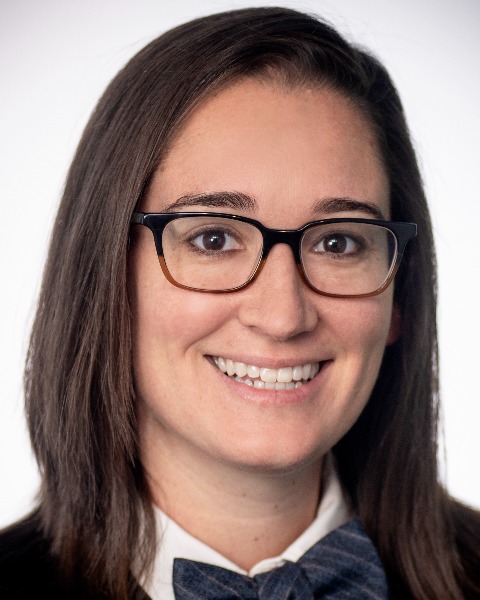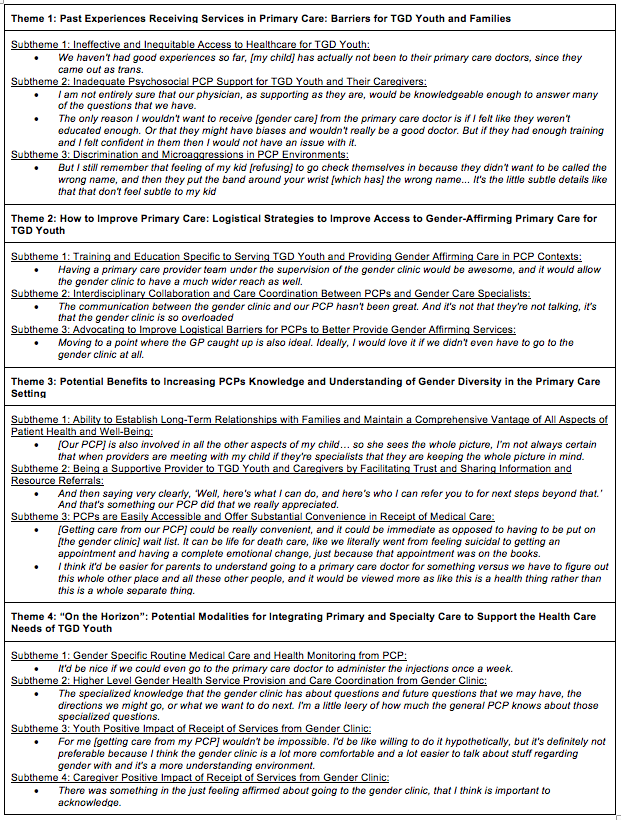General Pediatrics: Primary Care/Prevention
General Pediatrics 4
471 - “There’s landmines everywhere” Transgender and Gender Diverse Adolescents and their Caregivers Experiences Receiving Care in the Pediatric Primary Care Setting
Publication Number: 471.217

Gina M. Sequeira, MD, MS (she/her/hers)
Assistant Professor of Pediatrics
Seattle Children's
Seattle, Washington, United States
Presenting Author(s)
Background: Many transgender and gender diverse (TGD) adolescents experience barriers to receiving gender-affirming care. Delivering this care in the pediatric primary care setting may help facilitate improved access to this care, however little is known about TGD adolescents and their caregivers' perspectives regarding receiving it in this setting.
Objective:
The aim of this study was to explore TGD adolescents and their caregivers prior experiences receiving primary care services and their perspectives regarding gender-affirming care delivery in the pediatric primary care setting.
Design/Methods:
TGD adolescents and caregivers of TGD adolescents ages 14 to 17 were recruited from a multidisciplinary gender clinic. Participants completed a demographic survey prior to participating in hour-long, semi-structured, individual interviews over Zoom. Interview guides were developed in partnership with an existing stakeholder advisory boards and consisted of approximately 15 questions aimed to elicit participants’ prior experiences receiving primary care services and perspectives on receiving gender-affirming care from their primary care provider (PCP). Each interview was transcribed and a codebook was developed for each group in partnership with TGD youth and caregiver stakeholders. Each transcript was then individually coded and conflicts were adjudicated to consensus. Themes were generated iteratively using a reflexive thematic analysis framework. Recruitment of each group continued until thematic saturation was reached.
Results:
A total of 23 participants (15 adolescents and 18 caregivers) completed interviews. Both adolescent and caregiver participants described having negative experiences in primary care settings including difficulty finding a gender affirming primary care provider (PCP), unwelcoming primary care environments, and uncomfortable interactions with PCPs and clinic staff. However, when asked about receiving gender-affirming care in primary care, some described potential benefits related to convenience, the ability to receive comprehensive care from one provider, and improved collaboration between specialists and PCPs.
Conclusion(s): Despite past negative experiences receiving gender affirming care from PCPs, some TGD youth and caregivers endorsed benefits related to receiving certain gender affirming care services in the primary care setting. However, in order to achieve this, further work is needed to provide resources, education, and training to PCPs and their staff, and improve PCP-to-specialist communication and collaboration. 
